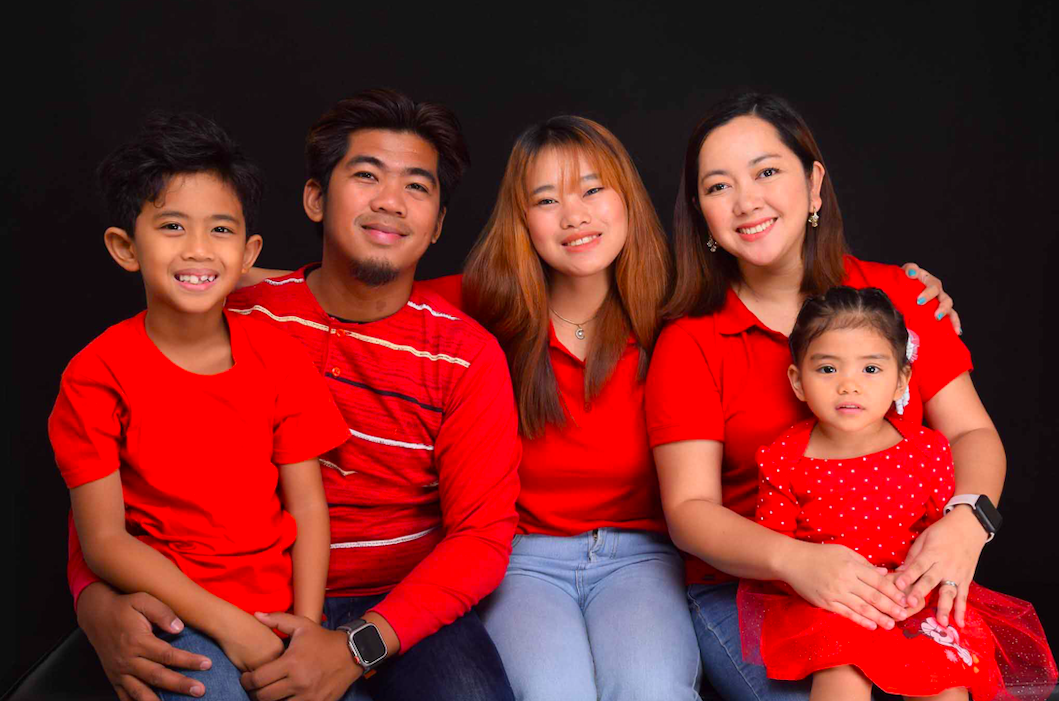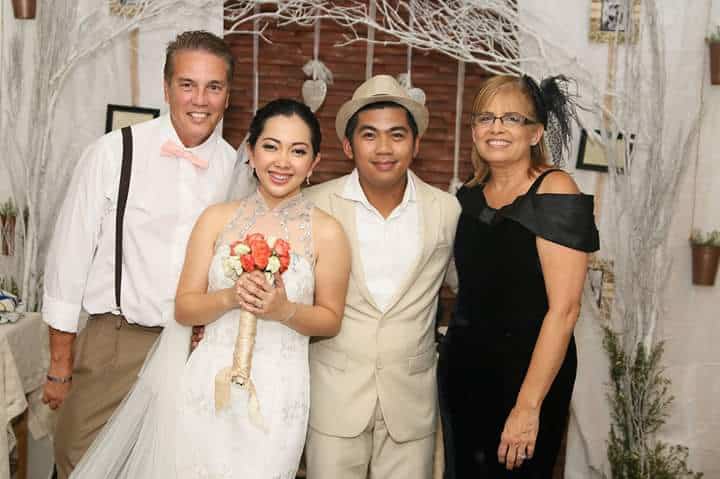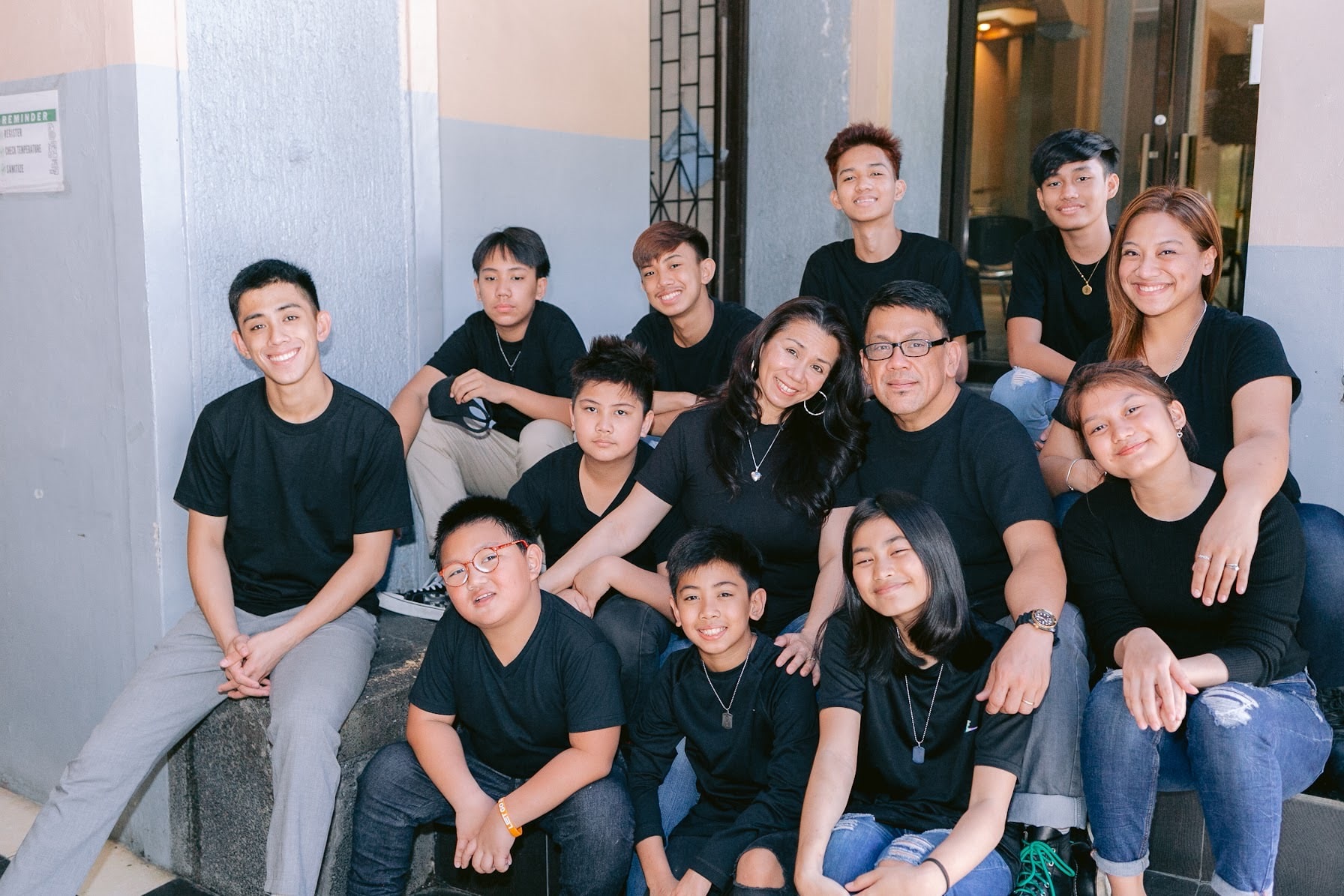They provide hope for vulnerable mums who face selling, aborting or abandoning their babies
by Gracia Lee // February 22, 2024, 5:20 pm

"One of the things I feel really strongly about is helping the Church move towards the hard things, like welcoming the prostitute into our office and sitting with her and hearing her story and not judging her," said Christina Henson, who with her husband, Jonathan, wants to support vulnerable mums so they do not sell or abandon their children. All photos courtesy of Generations–Home.
When Eufe Peñaflor found out she had conceived yet another baby from her work as a prostitute, she was at a loss.
With three boys under 12 that she was already struggling to feed, the Filipino single mother, who had been plying her trade in Manila, did not know how she was going to raise one more child.
“When I went to the ultrasound and saw that he was alive, I didn’t have it in me to do any harm to him.”
But that would be a problem for later. The more pressing issue was how she was going to provide for her children now that she could no longer work because of her pregnancy.
Having grown up in a broken and dysfunctional family, in which she had been sexually abused as a child, she knew that her family members would be of no help or support.
Even when she had pleaded for money to buy food for her children or send them to the hospital, her mother had coldly told her to solve her own problems.
Her sister urged her to abort the child, but Eufe, who had gone into prostitution at age 17 to support her younger siblings’ education, refused.
“When I went to the ultrasound and saw that he was alive, I didn’t have it in me to do any harm to him,” the 36-year-old told Salt&Light over Zoom from Manila.
The orphan crisis
Eufe’s story is not uncommon in the Philippines, said Christina Henson, co-founder of Generations–Home (previous ROHEI Foundation), a non-profit organisation in the Philippines that has been working to end the orphan crisis in the country since 2018.
Statistics from Philippines Without Orphans revealed that up to seven million children – a staggering 1 in 6 – in the nation have been orphaned, abandoned or neglected as a result of widespread poverty, lack of basic education, natural disasters and teenage pregnancies.
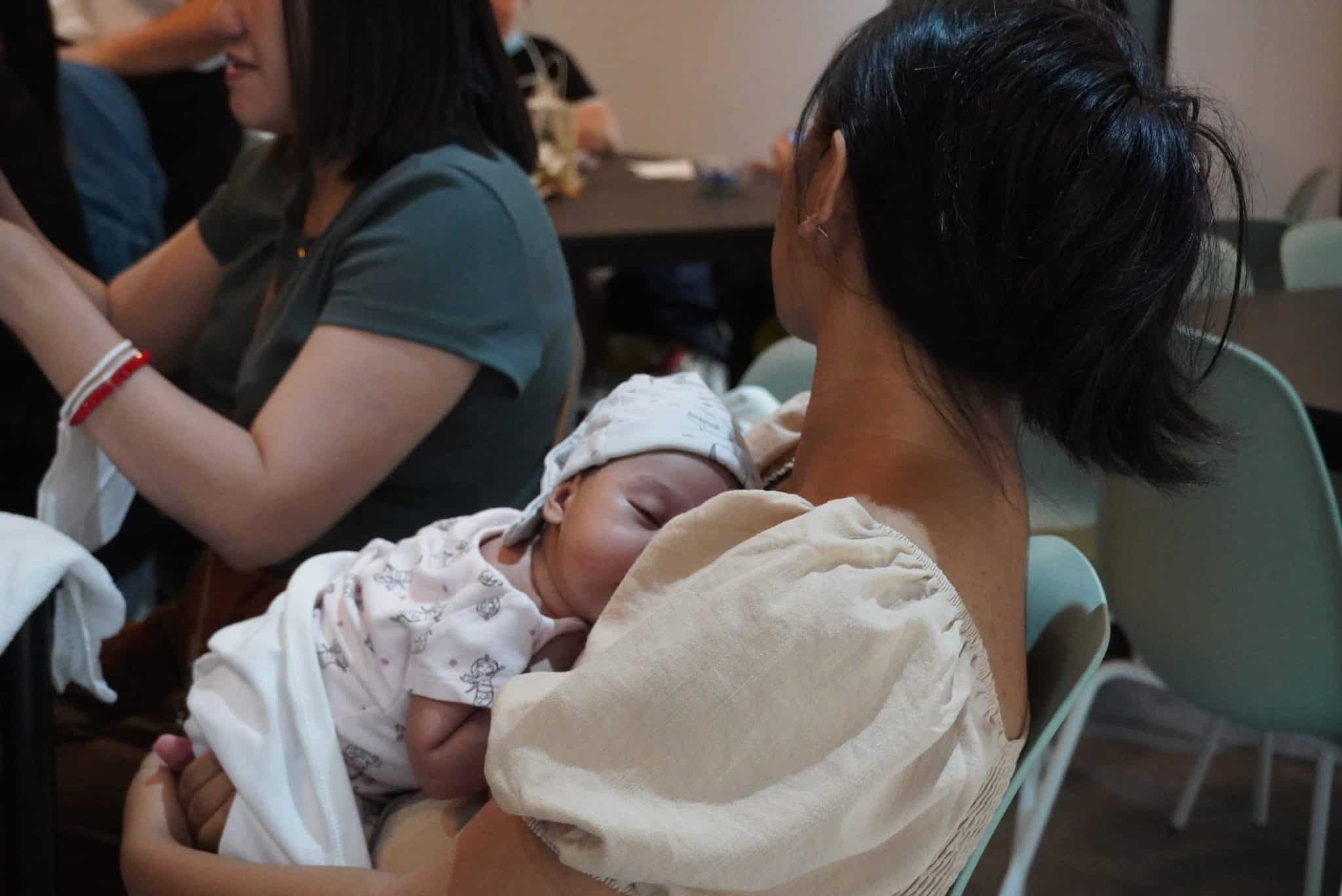
In 2022, almost half a million Filipino children, or roughly 1 in 100 children, were trafficked to produce child sexual exploitation material for profit, a study by International Justice Mission and the University of Nottingham Rights Lab found.
“When I talk to Singaporeans about it, they point out that this is the size of their entire population,” added Jonathan Henson, Christina’s husband and co-founder of Generations–Home. The couple worked in a consultancy agency in Singapore from 2011 to 2016.
“We’ve just come to really empathise with these mothers and understand that their situations and stories are very complex.”
Left with little to no support, vulnerable women like Eufe with unwanted pregnancies often choose to abort their foetus, sell their child or abandon their newborns outside church buildings or government offices.
“Selling is actually the most attractive option to them, especially in their communities and contexts where there’s already a level of poverty,” said Jonathan, 36.
The sold babies often end up trafficked into prostitution rings, fuelling one of the world’s fastest growing crimes: The online sexual exploitation of children (OSEC), a billion dollar industry that grew exponentially during the pandemic.
According to a 2016 study by UNICEF, the Philippines is the global epicentre of livestream sexual abuse, with eight in 10 children vulnerable to becoming victims of online sexual abuse.
A separate study by International Justice Mission and the University of Nottingham Rights Lab found that almost half a million Filipino children, or about 1 in 100 children, were trafficked in 2022 to produce child sexual exploitation material for profit.
“Please don’t leave me”
This is why, in addition to the adoption agency they run and their advocacy efforts, the Hensons set up a Pregnant Women in Crisis programme in 2020.
Called an orphan prevention initiative, the programme offers mums emotional support through counselling, as well as practical support through groceries and funding for prenatal checkups and a hospital delivery.
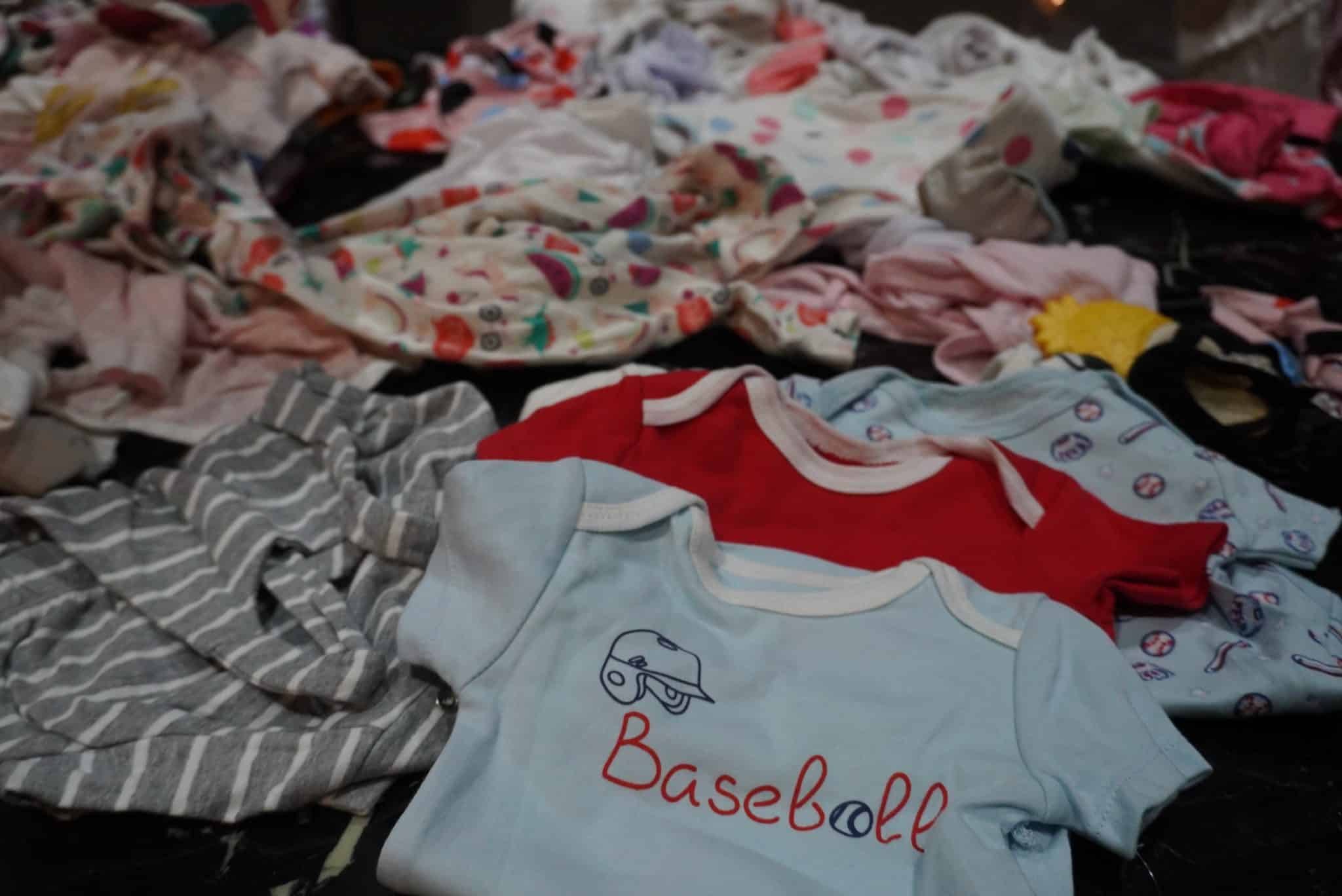
Among other forms of practical, emotional and financial support, the Women in Crisis Programme also provides baby clothing for expectant mums.
“We found that when we worked with a vulnerable mum in her time of crisis, 80% of the time that mother will choose to parent her child instead of selling or aborting or dangerously abandoning him or her,” said Christina, 37.
The programme takes in about 25 to 30 women a year and has helped more than 100 mothers to date. All of them live below the poverty line, and most are single mothers who already have two or more children.
One of them was Eufe, who found out about Generations–Home on Facebook. She had put up a post asking for help and someone had pointed her to the organisation.
She was connected to Norma, one of the two case workers under the Pregnant Women in Crisis programme. Norma made sure Eufe had enough groceries to feed herself and her children, as well as money to go for regular prenatal checkups.
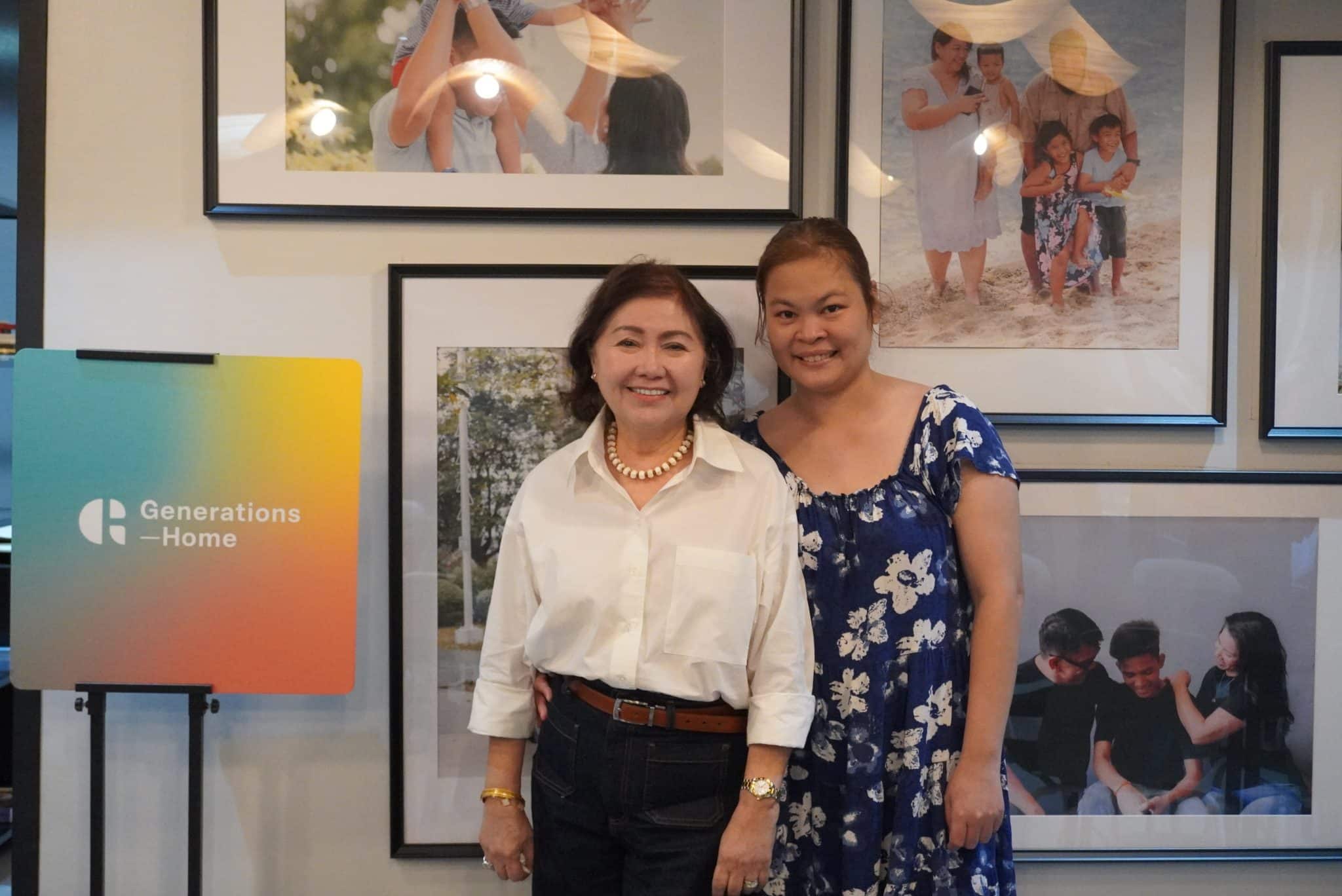
Eufe (right) with her case worker Norma, who was her greatest source of support during her fourth pregnancy.
Throughout Eufe’s pregnancy, Norma also offered a listening ear and words of guidance.
When doctors told Eufe that there were complications with her pregnancy and her child would likely be born with abnormalities, Norma prayed with her over the phone every night for her unborn baby.
“I told her once, ‘Please don’t leave me because I need your help to know how to do this, how to push through this.’”
And when her child – a perfectly healthy boy – was born on Christmas Day in 2021, Norma was registered in the hospital as her next of kin and shared in her joy.
Of all the support that she received, Eufe appreciated Norma’s voice of encouragement the most, she told Salt&Light.
“Nobody supported me when I wanted to keep the child. She gave me the support that my family didn’t provide,” said Eufe.
“I told her once, ‘Please don’t leave me because I need your help to know how to do this, how to push through this.'”
Eufe has since stopped receiving financial assistance from the programme, which supports mums up to a month postpartum, but she remains in contact with Norma over Facebook Messenger.
“The most important thing Generations–Home did for me was that nobody judged me. Even though I was from that line of work, nobody held it against me,” Eufe told Salt&Light.
A little compassion goes a long way
However, Christina and Jonathan readily admit that withholding judgment had not come naturally for them.
“Vilifying these pregnant mums was something that we were very guilty of at the beginning,” said Christina, sharing that one pregnant woman who had come to them for help had already sold six babies into prostitution rings.
“You think: What a terrible person. What kind of person would do that? But really, in her mind, it was the only way she knew to keep herself and her child alive,” she said.
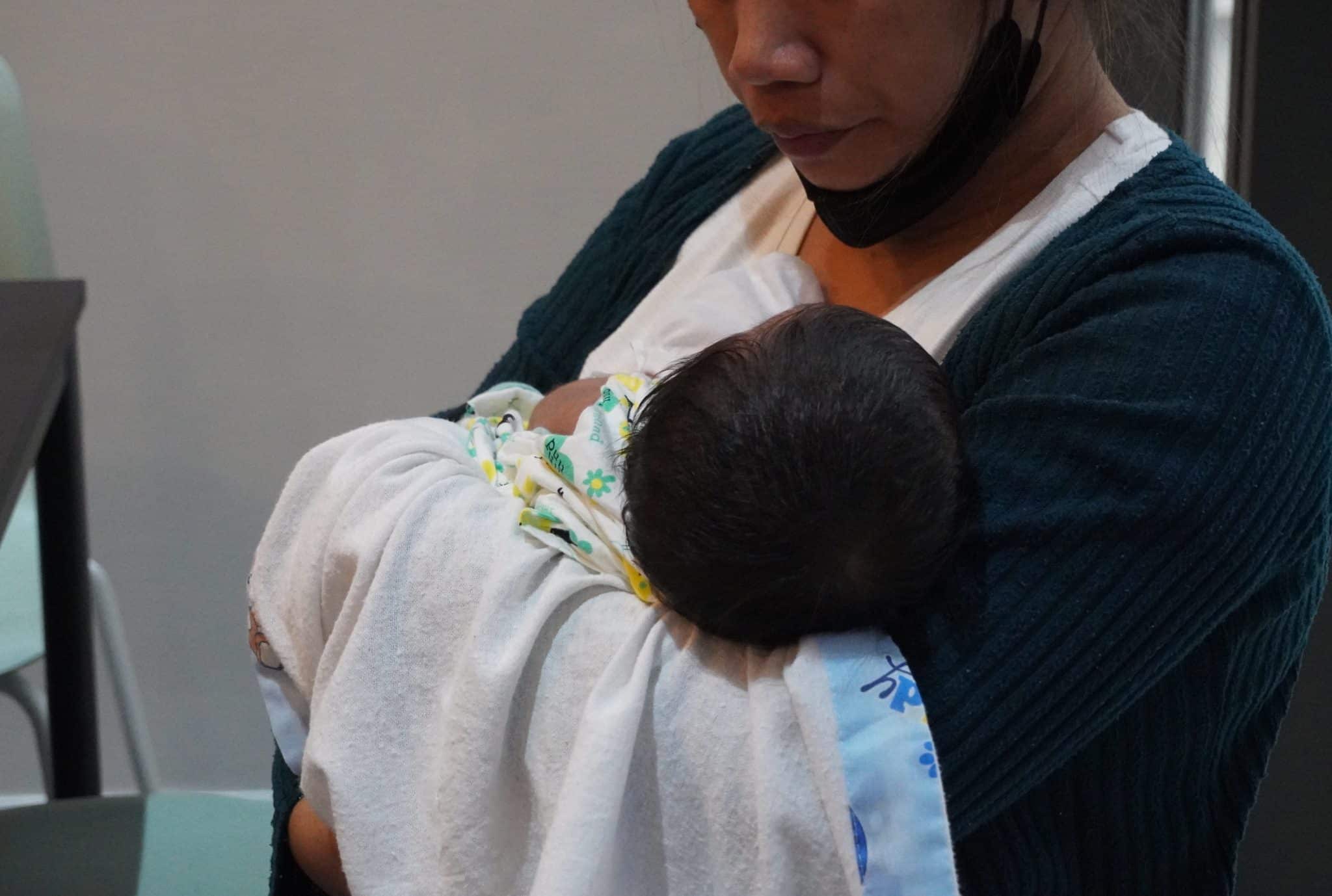
Generations–Home found that when vulnerable mums are engaged and supported, 80% of them would typically choose to parent their child instead of aborting, selling or abandoning them.
Later, they found out that this woman, a prostitute, lived in a makeshift house made out of cardboard boxes and was sleeping on the dirt floor.
“Selling her baby meant even a small chance that this child could have a better life than her. It meant that she wouldn’t need to sell herself for the next couple of weeks because she’d have enough to eat,” said Christina.
“We’ve just come to really empathise a lot more deeply with these mothers and understand that their situations and stories are very complex. But what drives them to do things as terrible as sell their baby are preventable with a little bit of support and compassion.”
One of their key strategies is to be active and present in the online space, specifically on Facebook pages meant to facilitate illegal adoptions and baby selling, to engage with vulnerable mums and inform them that other forms of help are available.
They also run a Facebook page called Tulong kay Nanay (“Help for Mothers” in Tagalog), which educates pregnant women about the realities of abandonment, abortion and trafficking, and points them to avenues of support.
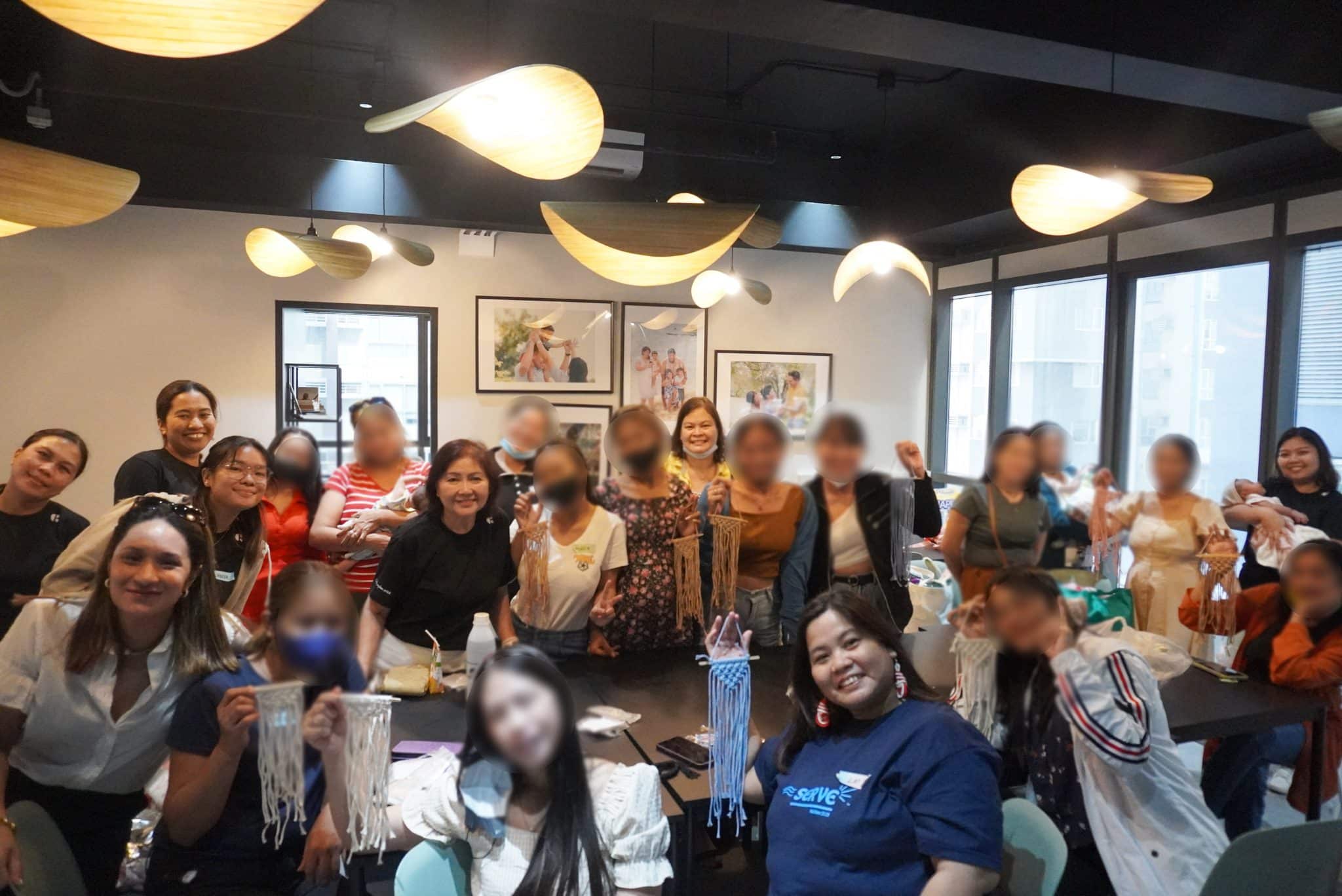
The team at Generations–Home with mums they have helped as part of the Pregnant Women in Crisis programme.
While case workers at Generations–Home encourage these mums to keep and raise their child, they also respect their decision not to parent, which is what about 20% of their beneficiaries choose, said Christina.
“If you’re not willing and you’re not ready, then maybe you’re not the best person to parent this child anyway,” she said, adding that the organisation helps to either place the child in foster care or put them up for adoption so they are not sold or abandoned.
Intolerable injustice
Despite their good intentions, the work does get gritty and difficult.
“Suddenly, the things that were broken in the world that we had tolerated, were intolerable for us.”
They have had women submit false documents just to receive support, as well as a heavily pregnant mum escape from the delivery room because she was still considering selling her baby.
“The work is very messy. It’s complicated,” said Christina matter-of-factly. But they trudge on, imitating Christ’s willingness to step into the brokenness of others.
“One of the things I feel really strongly about is helping the Church move towards the hard things, like welcoming the prostitute into our office and sitting with her and hearing her story and not judging her,” said Christina.
“Bringing the woman who has attempted multiple abortions into our space and loving on her, and still believing that she has the chance of becoming a good mother.
“Loving the 13-year-old who went off with some guy and got pregnant, and still believing that she can have a good life, believing that there’s still room for hope and restoration, and not letting her feel the shame and guilt of her sins.”
The couple shared that God had softened their heart for the last, the lost and the least during their time in Singapore, as their church here was reaching out to the vulnerable communities in the nation.
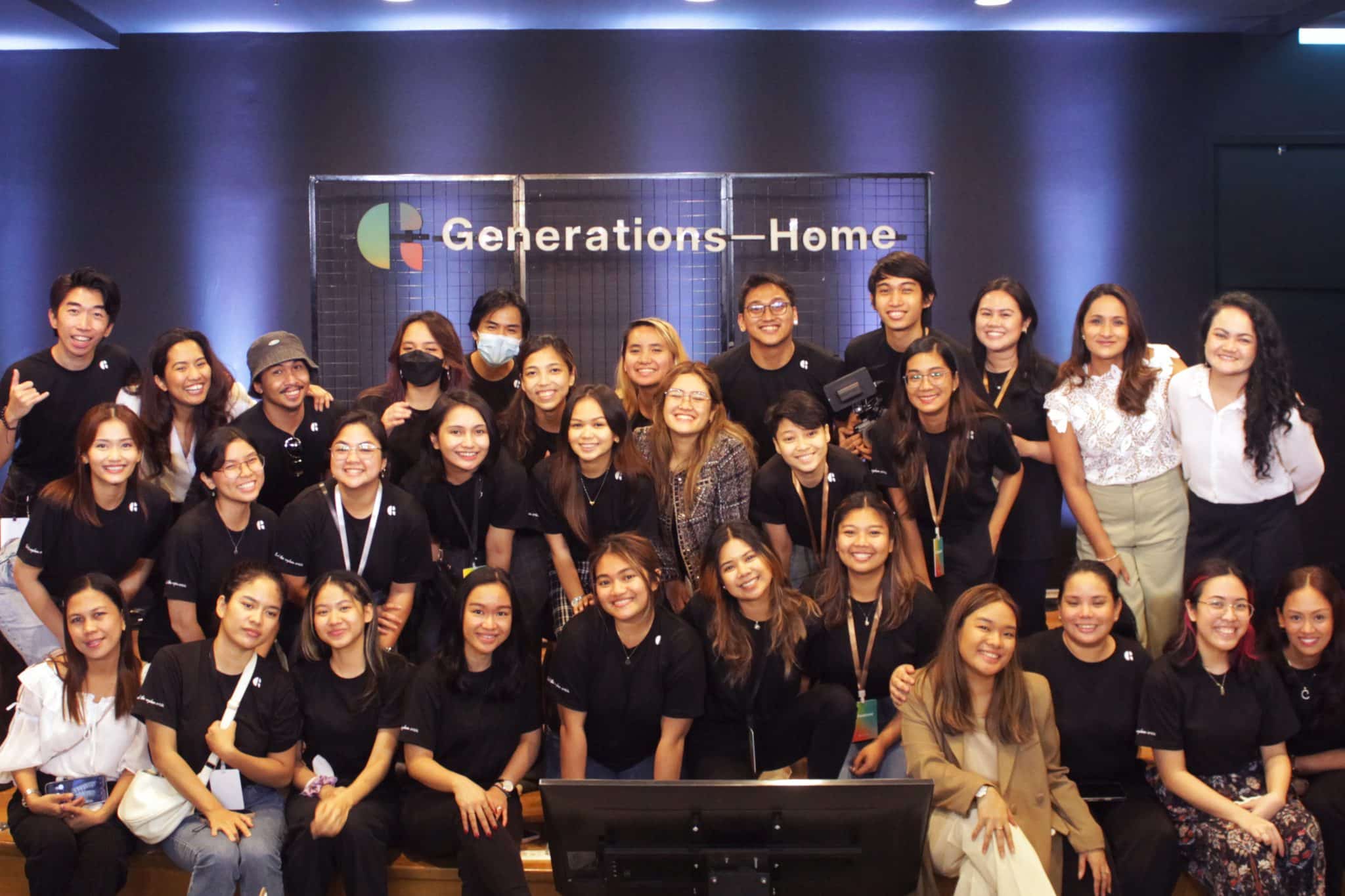
The team at Generations–Home comprises seven staff members and other volunteers.
When they returned to the Philippines in 2016, while still mourning the death of their stillborn daughter, they found their hearts broken for the barefoot street children who would knock on their car window during their daily commute – an everyday sight they had previously ignored.
“I remember sobbing like crazy, and I couldn’t bear the fact that there was a kid outside with no shoes. Here I was grieving my own one child and I look up and there were hundreds of kids,” said Jonathan.
Christina added: “Suddenly, the things that were broken in the world that we had tolerated, and that most people continue to tolerate, were intolerable for us. The injustice was just not something we were willing to live with.”
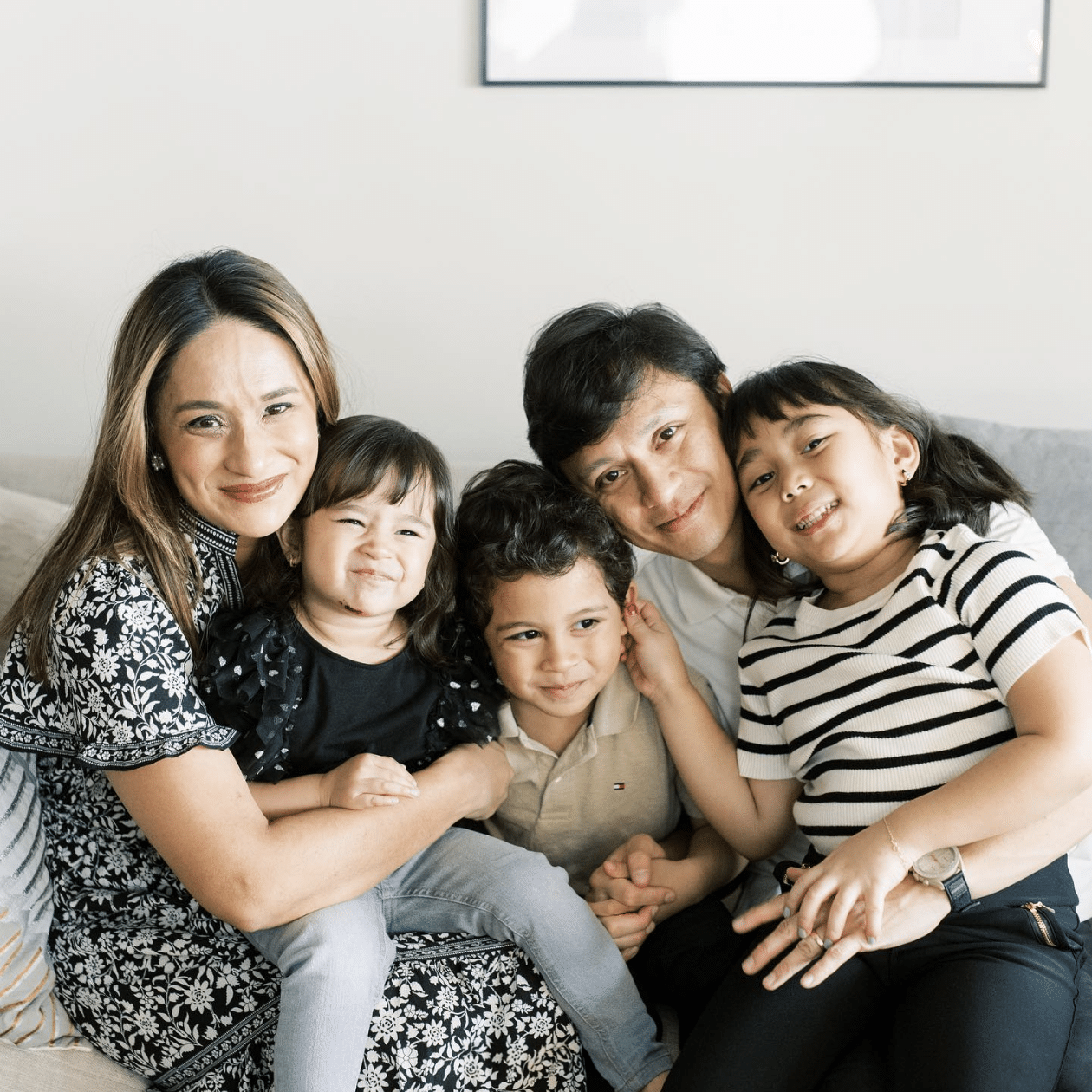
Christina and Jonathan with their children (left to right): Brie, 3, Tony, 4 and Chloe, 6.
Through their work, including their adoption agency and advocacy efforts, they hope to bring restorative justice, which to them is “putting things back to the way God had designed it”, said Jonathan.
As Christians, the couple, who have one adopted daughter and two biological children, believe that God’s design for the flourishing of society is rooted in the health of families, which the new name of their organisation – Generations–Home – reflects.
“When we help one mum or we help one child get adopted, it doesn’t just affect the child. It doesn’t just affect the mum. It affects all the generations to come,” said Jonathan.
“You can’t comprehend the impact. We like to say, one small act creates a generational impact.”
Hope for the future
That is their hope for Eufe and her four boys, now aged 12, 6, 3 and one.
Said Eufe: “It’s been so difficult to raise all of them, but I wanted to keep them because they give me the strength to wake up every day.
“I believe there is a purpose to why these children were given to me.”
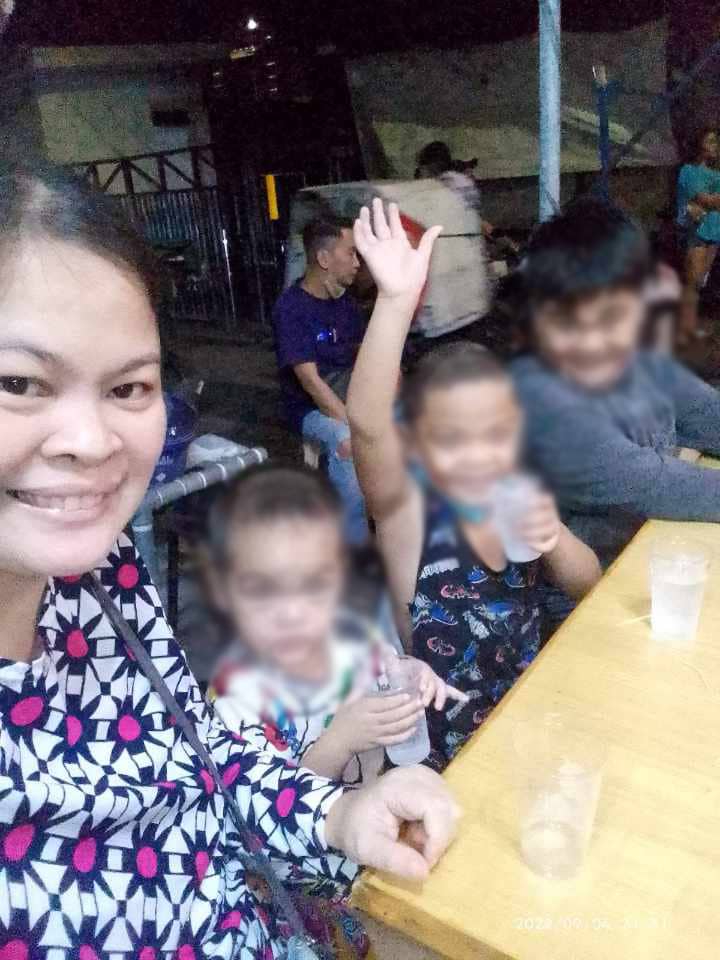
Eufe, pictured here with three of her sons, is open about her past as a sex worker: “That’s just what I needed to do at the time to keep my family alive,” she said.
While Generations–Home found her a job as an office cleaner about a month after her fourth son was born, she had to stop work after two months as her eldest son was not coping well with juggling school and taking care of his brothers while she was at work.
“I had no choice but to go back again to my line of work for a while, because that allowed me to work at night and be home with my children in the day,” she said.
She saved up money and eventually set up a store selling fresh and dried produce at her home, which allows her to work and look after her children at the same time.
She counts this as one of her many prayers that God has answered. She had learnt from Norma, her Generations–Home case worker, to commit all her problems to God.
“After everything I’ve been through, the fact that I’m alive and here right now is because of God,” she said.
“Before my relationship with Jesus, it was just about daily survival. But after I had a relationship with Jesus, I have enough to pay for bills and to think about the things of the future.”
If you’d like to help mothers like Eufe and partner Generations–Home in ending the orphan crisis in the Philippines, click here.
RELATED STORIES:
From stillbirth to adoption: When God turned a couple’s heartbreak to happiness
We are an independent, non-profit organisation that relies on the generosity of our readers, such as yourself, to continue serving the kingdom. Every dollar donated goes directly back into our editorial coverage.
Would you consider partnering with us in our kingdom work by supporting us financially, either as a one-off donation, or a recurring pledge?
Support Salt&Light